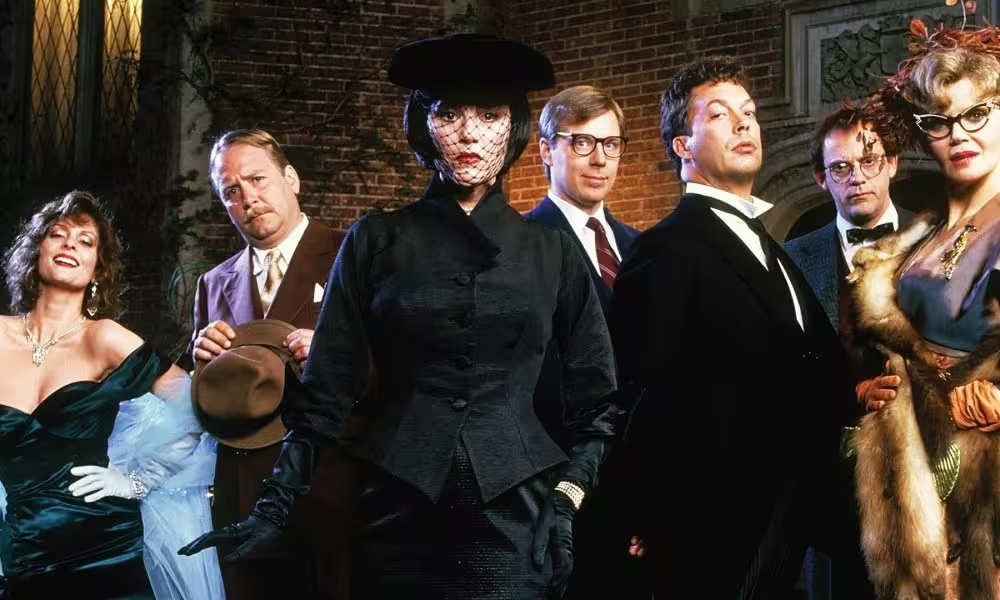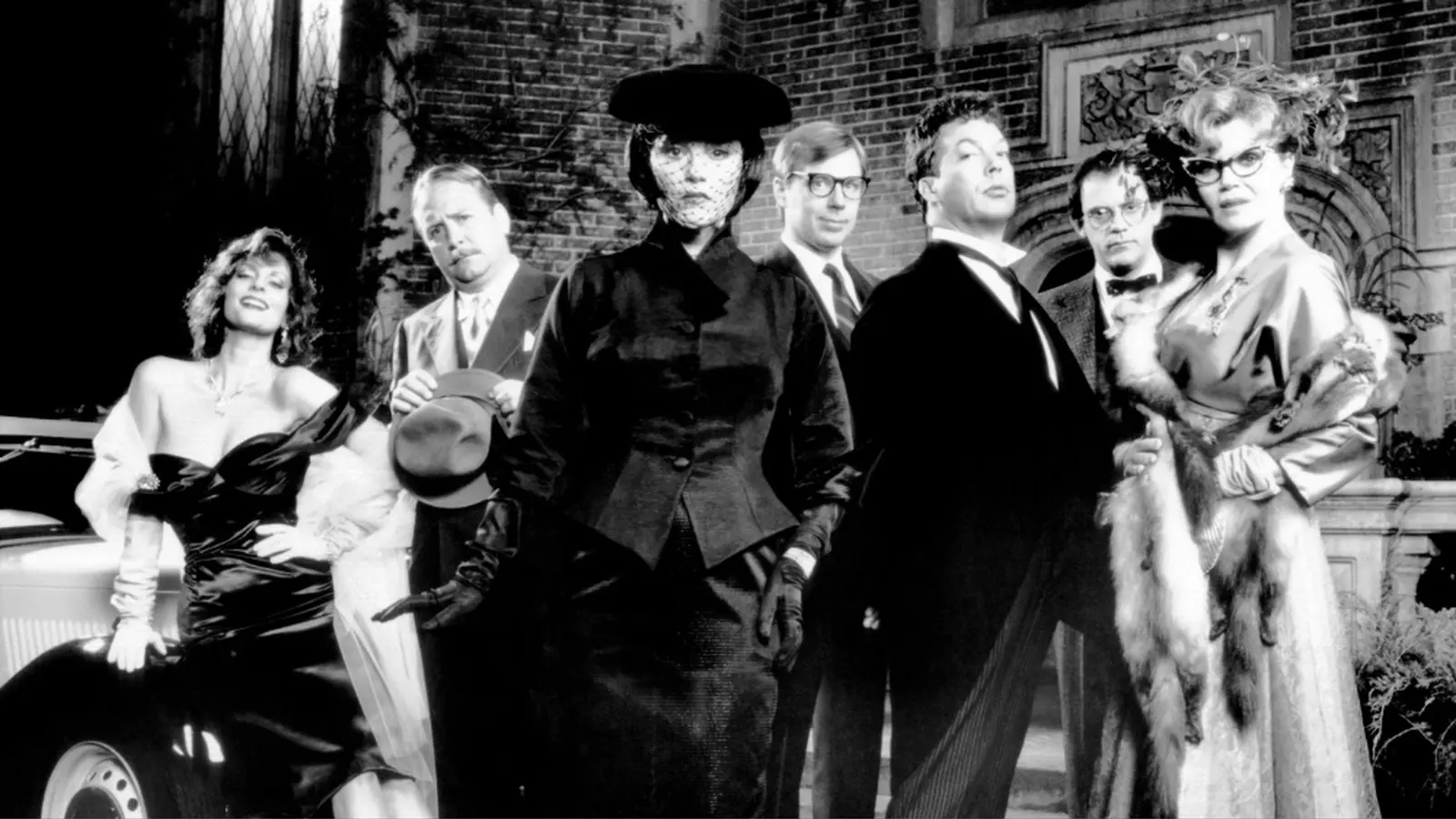6 Minutes
Netflix brings Clue to life with a competitive twist
Netflix has greenlit Clue, an unscripted competition series based on the decades-old murder-mystery board game and the cult 1985 black comedy. The streamer’s new take transforms familiar elements—the suspects, the mansion, the iconic who-where-with-what puzzle—into a living, breathing whodunit where contestants must collect clues, solve puzzles, and deduce the culprit to win cash.
The premise is simple in description but rich in possibility: a group of players face physical and mental challenges to locate evidence and earn chances to make accusations. Correct guesses add to a shared prize pot; wrong answers can cost a player their seat. Along the way they’ll interact with costumed suspects like Miss Scarlett, Colonel Mustard, Professor Plum and Mrs. White—bridging board game nostalgia with reality-TV drama.
What to expect from the format
Clue’s game mechanics are faithful to the original core mystery—identify the murderer, the room, and the weapon—but Netflix’s adaptation layers in obstacle-course elements, logic puzzles, and social strategy. Think of it as part The Mole, part Fort Boyard and part classic panel-game deduction: contestants must balance speed and accuracy, teamwork and betrayal.
Producers describe the series as a “real-life game of deduction and deception,” which suggests a mix of cinematic production design and unscripted energy. The show is produced by Hasbro Entertainment in partnership with The Intellectual Property Corporation (IPC) and B17 Entertainment—teams with recent credits ranging from game-show adaptations to prestige reality formats.

Behind the board: production, rights and creative lineage
The rights story is notable. Sony Pictures acquired significant Clue rights via a Hasbro deal and IPC and B17—both now tied to Sony—are behind the production alongside Hasbro Entertainment. Executive producers on the project include Eli Holzman, Aaron Saidman, Rhett Bachner and Brien Meagher, working with Hasbro execs Gabriel Marano and Zachary Edwin.
Clue has been a cultural mainstay since the board game’s launch in 1949 and after selling over 150 million copies, it entered Hollywood lore with Jonathan Lynn’s 1985 film. That black comedy, starring Tim Curry as Wadsworth, remains beloved for its slapstick timing, ensemble cast and infamously multiple endings. The film’s tone—part farce, part locked-room mystery—informs the new series’ emotional DNA even as the format becomes competitive.
Context: why board-game IPs are hot for streaming
Hasbro’s push to expand its brands into film and television is a clear industry trend. From the Dungeons & Dragons series and Magic: The Gathering projects at Netflix to separate Monopoly game-show plans, streamers are mining tabletop nostalgia for established fan bases and built-in mechanics. Board games provide ready-made rules, character archetypes, and a balance of strategy and spectacle—attributes that translate well into unscripted competition.
This adaptation fits a larger appetite for hybrid formats that mix narrative hooks with game-show stakes. Recent hits have shown audiences enjoy formats that reward both puzzle-solving and interpersonal drama, and Clue’s combination of roleplaying suspect characters and contestant deduction is designed to deliver both.
Comparisons, risks and creative opportunities
Comparatively, if Monopoly’s Netflix game-show leans into spectacle and prize-driven play, Clue promises more cerebral tension and theatrical staging. The most interesting comparison is less a single show and more a genre: the series must balance the scripted feel of a murder mystery (character, atmosphere, reveals) with the unpredictable rhythms of reality competition. Done well, it could take cues from successful narrative-leaning unscripted hits; done poorly, it could feel like a gimmick.
There’s also creative opportunity in embracing the 1985 film’s mischievous tone. Producers can wink at fans with easter eggs—the multiple endings gimmick, Wadsworth-style butler narrations, or set pieces that mimic the mansion’s secret passages—while modernizing for faster pacing and diverse casting.
Trivia, reboot attempts and fan appetite
Trivia fans will enjoy that Clue has been optioned and revisited many times. After the 1985 movie’s cult success there were multiple reboot efforts—Universal, Gore Verbinski, and various talent like Ryan Reynolds and Jason Bateman were attached at different points. An animated TV version was also once in development. This new unscripted route marks the freshest direction to emerge from that long reboot carousel.
"Clue’s transition from board and film to an unscripted format is a logical next step for property exploitation," says cinema historian Marko Jensen. "It taps the communal joy of the game while allowing contemporary TV craft to heighten suspense and character. The risk is keeping the mystery fair and rewarding for viewers who love solving puzzles."
Why it matters
For fans of murder mysteries and game shows alike, Netflix’s Clue could become a template: a high-production-value, IP-driven unscripted series that leverages a familiar brand for viewers across generations. It’s also a marker of how legacy entertainment companies like Hasbro repackage classic IP for streaming-era formats.
Expect teasers to lean into theatrical set design, playful suspect performances, and puzzle-driven eliminations. Whether the series will replicate the 1985 film’s comedic genius or carve out a new identity as a tense reality whodunit remains to be seen.
In short: if you loved poring over the Clue casebook as a kid, this may be the show that finally lets you shout the answer at the TV—and, for once, be rewarded when you’re right.
Source: deadline



Leave a Comment